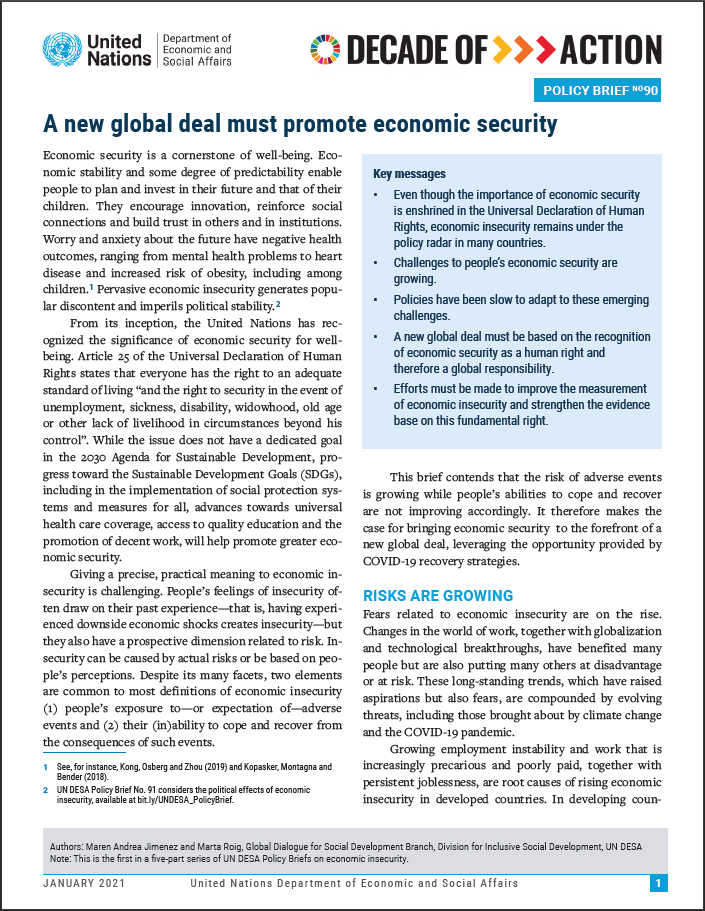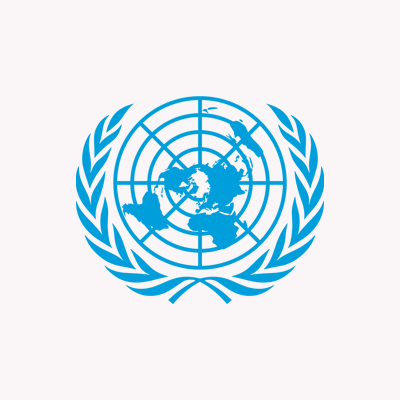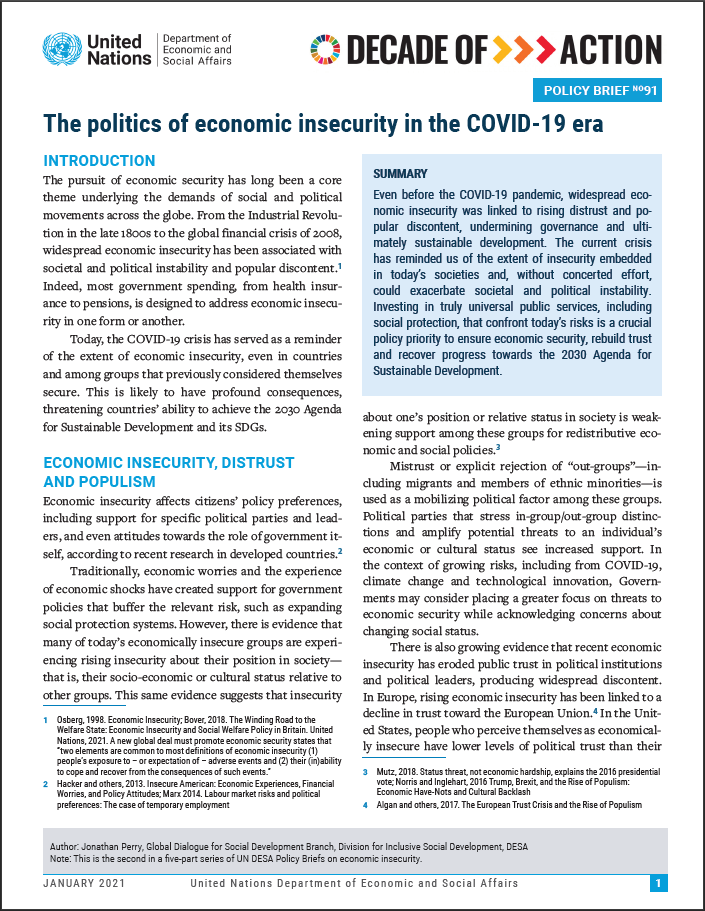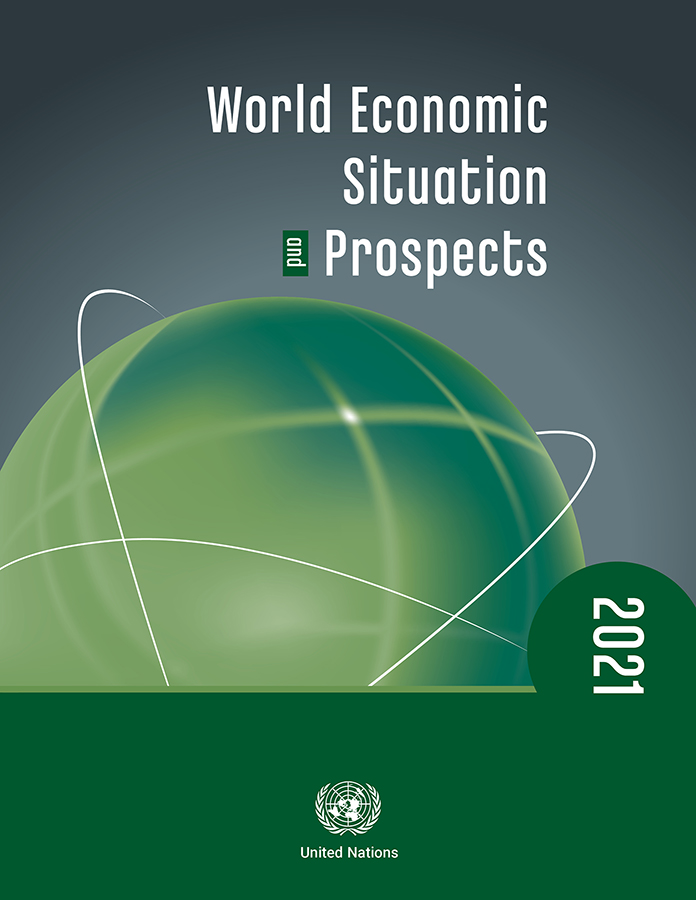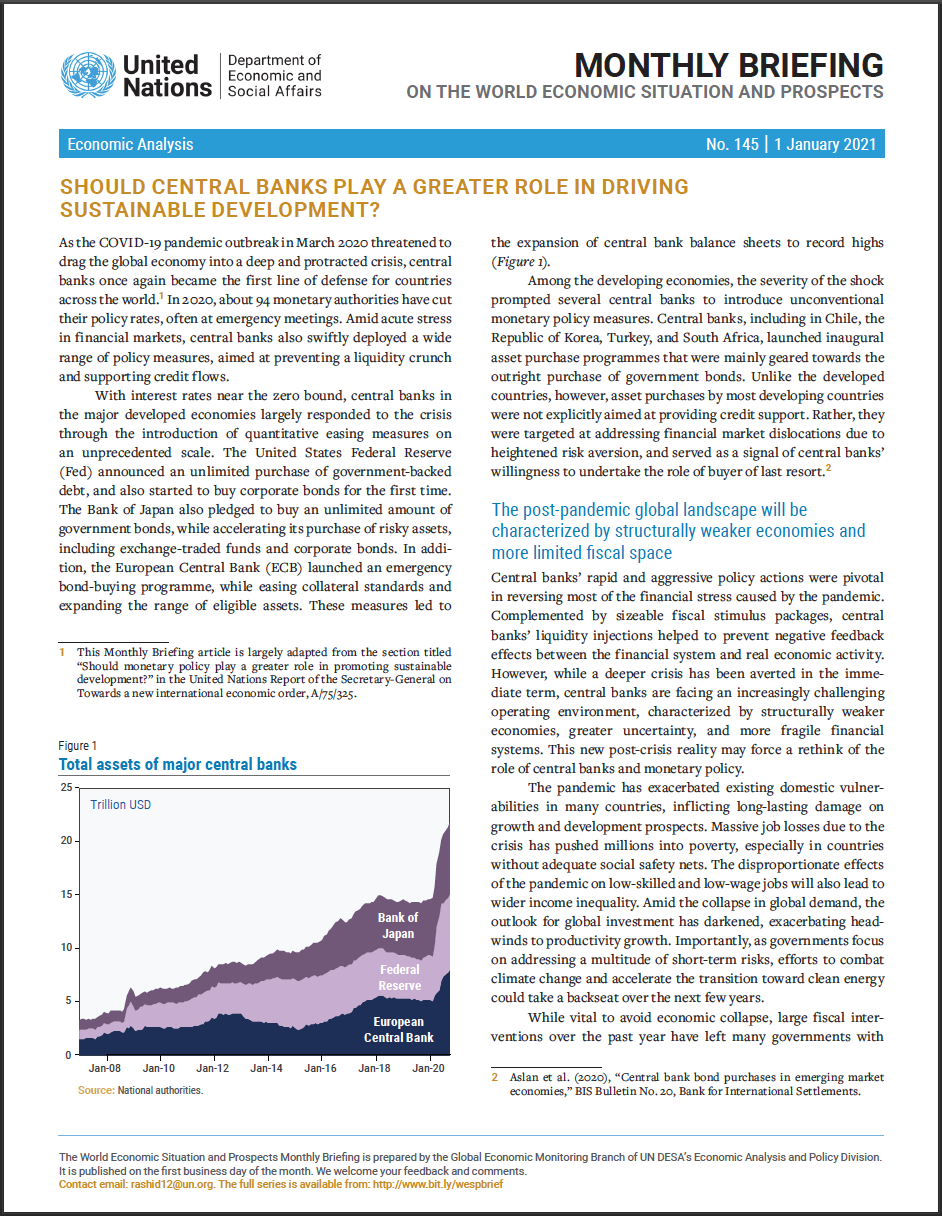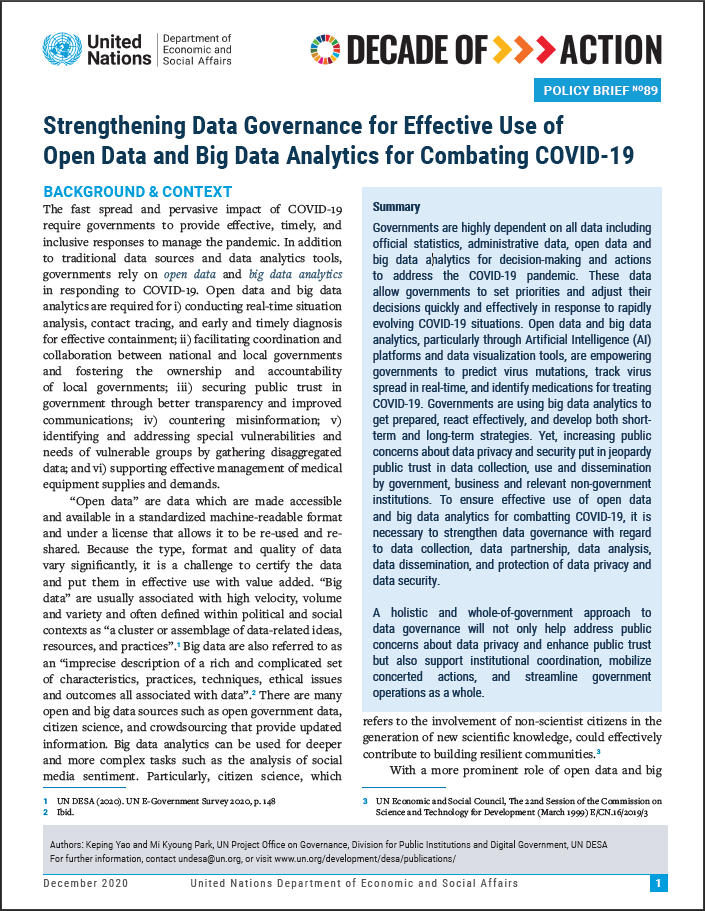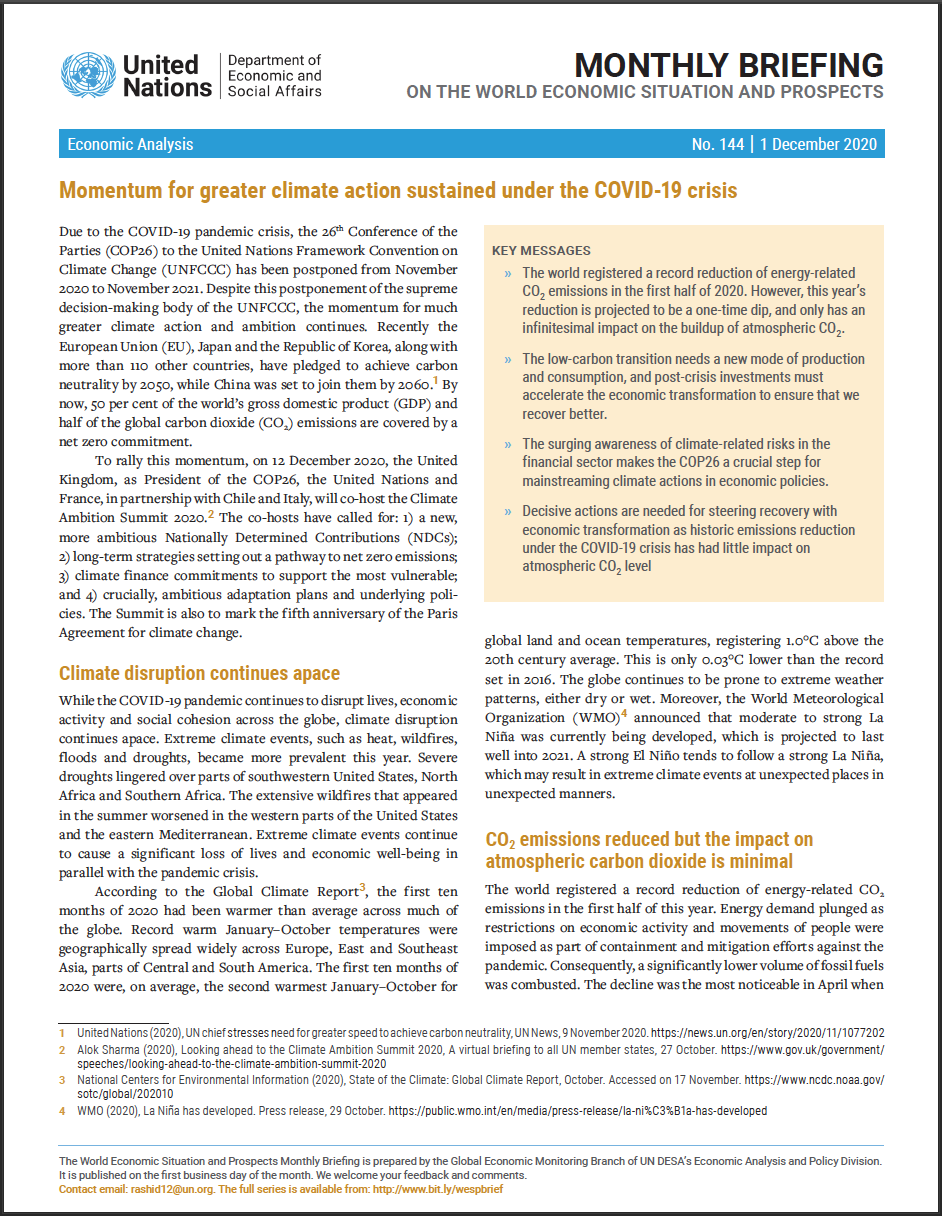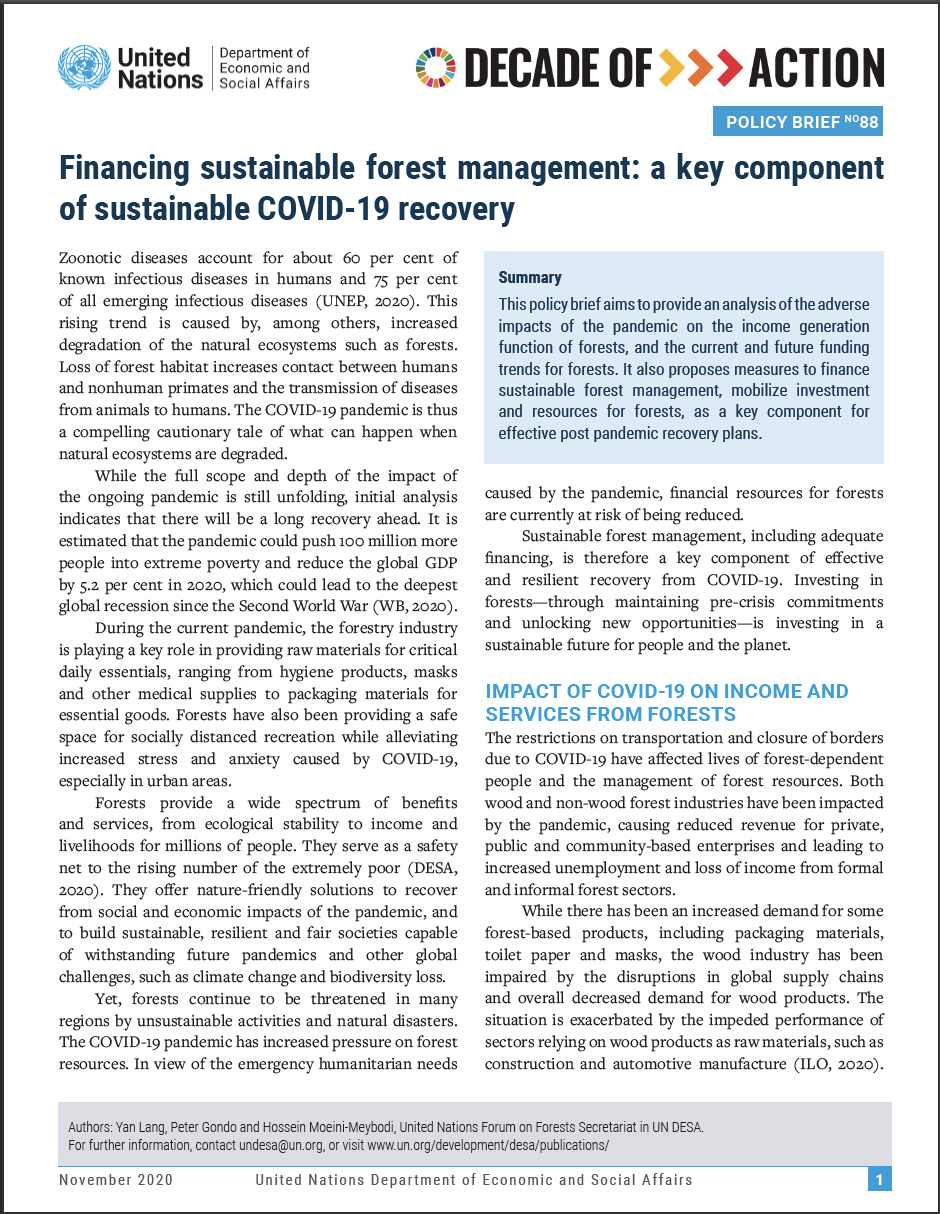Publications
Displaying 221 - 230 of 1105
Place: Virtual meeting Documents Agenda Report of the Committee for Development Policy (E/2021/33, Supplement No. 13)
عربي, 中文, English, Français, Русский, Español Opening Statements Statement by H.E. Ambassador Munir Akram, President of United Nations Economic and Social Council Statement by Elliott Harris, Assistant Secretary-General for Economic Development and Chief Economist Statement by Jose Antonio Ocampo, Chair of the Committee for Development Policy Open Session on ECOSOC Interaction Statement by Jose Antonio Ocampo, Chair of the Committee for Development Policy Recording of the session Briefing to Delegates on LDC issues Recording of the…
 Welcome to the United Nations
Welcome to the United Nations
